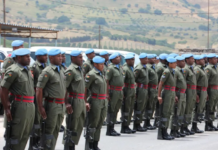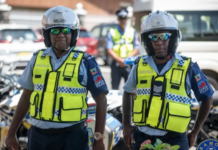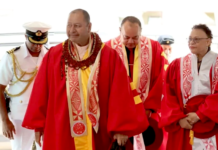On World Radio Day, celebrated on Monday, Reporters Without Borders (RSF) paid tribute to radio’s contribution to the fight for media freedom and urges support for exile radio stations that uphold the right to news and information of peoples subjected to the most extreme situations.
“At a time of technological revolution and upheavals in the way we provide and obtain news and information, radio plays an essential role in promoting free speech and the right to be informed,” RSF secretary-general Christophe Deloire said.
“World Radio Day is an occasion to hail the courage and dedication of radio journalists who, in their own country or in exile, provide freely and independently reported news coverage to peoples experiencing crises or living under authoritarian regimes.”
UNESCO launched World Radio Day in 2012 to celebrate the importance of radio broadcasting throughout the world and the role that many radio stations play in providing communities with news coverage. The situation in Syria, Africa or North Korea shows that radio can be a powerful tool in the service of the people’s right to reporting that is independent, outspoken and free of any state censorship.
Syria: Informing communities beset by war
Where there is no electricity or internet, radio adapts to the daily existence of a population caught in the trap of war. Easy to operate and easy to tune into, dozens of radio stations broadcasting on FM wavelengths or sometimes on the internet emerged in Syria after the start of the uprising in 2011.
Stations such as Radio Fresh, based in northern Syria, have proved useful above all at facilitating communication and representation within local communities, even if they face major challenges, especially structural and logistic ones, in the absence of sustained support from external actors and sizeable listener catchment areas.
These radio stations are exposed to the same dangers as all journalists in what is the world’s deadliest country for media personnel. In April 2016, gunmen torched the headquarters of ARTA FM, a Kurdish radio station in the northeastern city of Amouda and threatened to kill its director if he tried to resume broadcasting.
For security reasons, most of these new independent radio stations are based in areas held by the opposition or by the Kurdish forces, or have had to base themselves outside the country to escape the Syrian government’s censorship.
Radio Alwan and Nasaem Souria have found a refuge in neighbouring Turkey. The first is based in Istanbul and the second in Gaziantep, a city close to the border. They manage to reach Syrians as far south as the Idlib region (about 300 km north of Damascus).
The Paris-based independent Syrian web radio Rozana was launched in June 2013 by Lina Chawaf, a well-known Syrian journalist who fled her country in 2011 and convinced RSF and other international NGOs to support this major project.
Rozana relies on a dynamic network of citizen journalists inside Syria, who often take risks to do their reporting. One of their correspondents was fatally injured by rebel gunfire while on assignment in Idlib province in September 2014. Another Rozana citizen journalist was kidnapped in eastern Aleppo on August 2013 and is still held by Islamic State.
Africa’s watchdogs
In sub-Saharan Africa, radio is clearly the most important form of media. In countries afflicted by crises or bad governance, radio stations sometimes even come to assume of the functions of the state. At the height of the conflict in the Central African Republic in 2012-2013, communities in Bangui left their dead outside Radio Ndeke Luka to be counted.
“We were police, judge and hospital all in one,” the station’s news editor said at the time.
In Burundi, privately-owned radio stations not only provided news but also educated the public about their rights, denouncing abuse of authority by policemen, judges and other state entities. Some of the radio stations became so influential that the government felt threatened and seized the first opportunity to crush them. All but one of Burundi’s independent privately-owned radio stations have remained closed since an offensive against them in May 2015.
Governments too often regard radio stations as targets to be neutralized. In Democratic Republic of Congo, local FM retransmission of Radio France International’s broadcasts in the capital Kinshasa has been suspended for the past three months because of its coverage of the crackdown on protests against the unconstitutional postponement of the president election. The RFI signal from nearby Brazzaville, which can be picked up in some Kinshasa districts, is also being jammed.
In Eritrea, a country that has distinguished itself by being ranked last in RSF’s World Press Freedom Index for the past eight years, only one media outlet can claim to provide freely and independently reported news and information – a radio station called Radio Erena (“Our Eritrea”).
Based in Paris, far from Eritrean government threats and pressure, it is headed by Biniam Simon, a onetime star presenter on Eritrean national TV and now a political refugee, who founded it seven years ago with RSF support. It broadcasts for two hours a day in Tigrinya (Eritrea’s national language) and Arabic by satellite, Internet and mobile phone app, covering stories ignored by the local media, which are reduced to being the propaganda outlets of Africa’s worst dictatorship.
Asia-Pacific: Exile radio ‘lifelines’
Broadcast media entirely under state control is a common feature of China, Vietnam and Laos. Prior censorship is the rule in these particularly authoritarian regimes. And the authorities often jam the signals of foreign radio stations such as Voice of America and Radio Free Asia that offer one of the few possibilities of getting freely reported news.
North Korea’s unparalleled determination to combat “hostile foreign forces” has driven many of its citizens to violate its draconian laws in order to acquire radio sets capable of receiving the shortwave broadcasts of exile radio stations, especially those based in South Korea.
The number of radio stations broadcasting to North Korea from Seoul has grown in the past decade or so. The first was Free North Korea Radio (FNK), which was launched in 2005. The others include Open Radio for North Korea (ORNK) and Radio Free Chosun (RFC). Run by North Korean refugees, they broadcast uncensored news reports, much to Pyongyang’s annoyance.
As more and more North Koreans get their hands on shortwave radio sets that are being smuggled into the country, the regime has stepped up its jamming and its persecution of those caught in the fact of listening to these “seditious” broadcasts.
Radio sets confiscated by the People’s Security Agency are generally locked onto the regime’s official radio station frequency (by means of soldering and withdrawal of electronic components). This is arguably a lesser evil because those caught listening to international radio stations at night usually pay a very high price.
Several military units – including “Group 109,” reportedly once run by no less a person than Kim Jong-Un – are specifically tasked with randomly visiting homes to seek evidence of foreign media consumption. The death penalty is only rarely imposed for such a crime, but offenders are known to have been sent to labour camps.
Supporting exile radio stations
“In times of peace, conflict and emergencies, radio remains a crucial source of information and knowledge,” UNESCO director-general Irina Bokova said in a message for World Radio Day, adding that radio can also “provide a beacon for innovative solutions to local problems, and continue to advance human rights.”
Her words take on added importance in the extreme situation of a country that has a dictatorial regime or in a failed state that is prey to armed groups and endemic violence.
Every year, dozens of journalists are forced to flee their country to escape danger. Reducing journalists to silence by encouraging them to flee abroad is more than ever an integral part of the repressive arsenal used by media freedom’s enemies throughout the world.
When some of these journalists manage to find work with foreign radio stations that cover their country of origin, or when they get together to create new radio stations targeting the fellow citizens they left behind, RSF believes that we all have a duty to support them.
RSF urges the governments of countries that give journalists political asylum to do everything possible to make it easy for them to continue practicing their profession. RSF also calls on media freedom organisations to increase the assistance they provide to these journalists and free speech defenders.
Reporters Without Borders/Pacific Media Watch

















































[…] https://asiapacificreport.nz/2017/02/15/radio-last-bulwark-of-media-freedom-and-independence/ […]
Comments are closed.